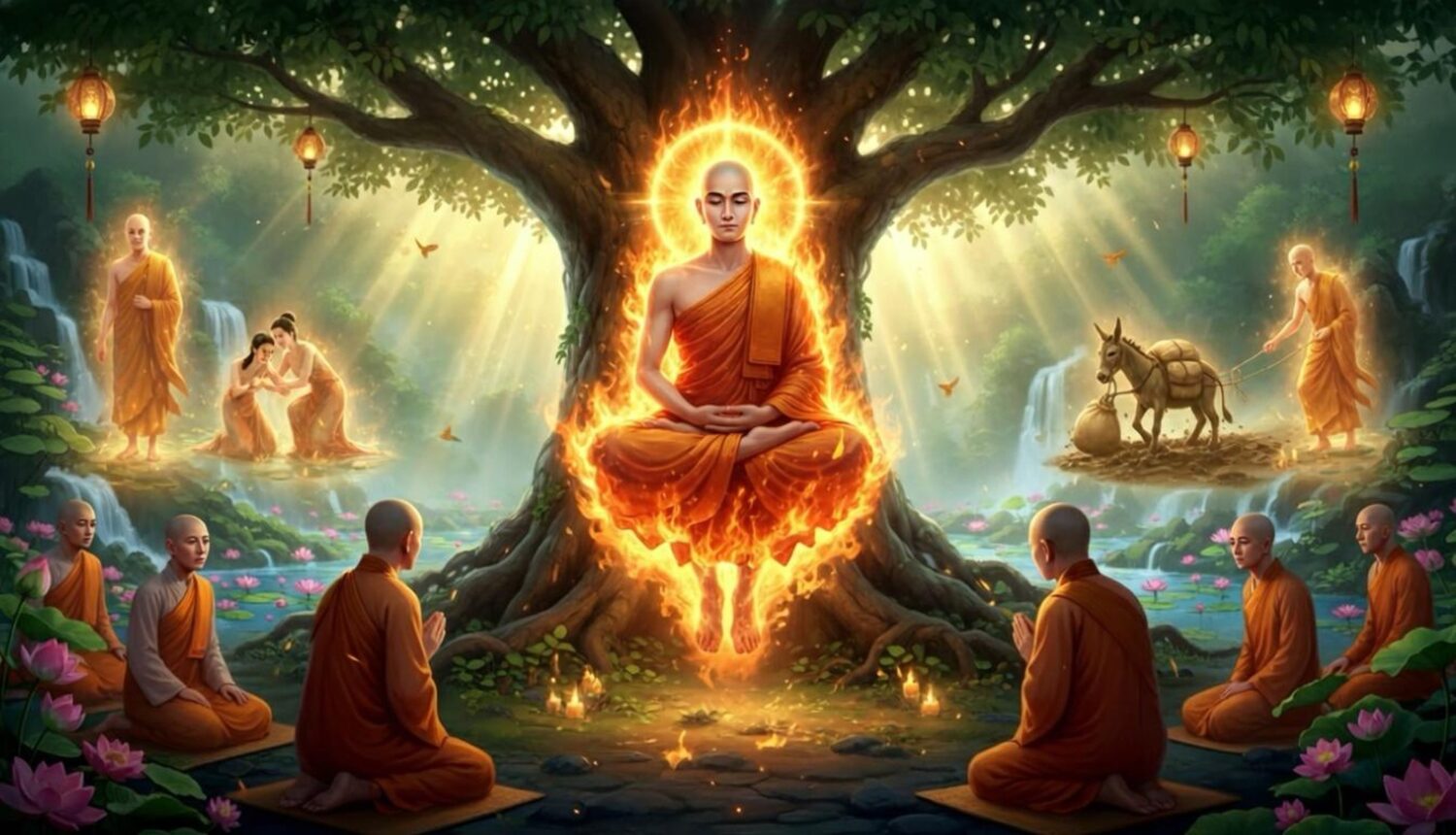
Date: 03/01/2025 03/02/2025
Location: Star Ocean Meditation Center
Teacher: Otto Huang
Dharma Talk
The Care of the Sick Bhikkhu
Once, the Buddha, along with his bhikkhus, was traveling and arrived at Rājagaha, the capital of Magadha. They stayed in the Bamboo Grove Monastery at Kalandaka Bamboo Park, located in the northern outskirts of the city.
At that time, there was a bhikkhu in Rājagaha who had fallen seriously ill. His condition was so severe that he could not even get up to relieve himself. However, no other bhikkhus came to visit or care for him, leaving him to lie in bed day and night, lamenting:
”Why does the Blessed One alone show no compassion for me?”
Through his divine ear, the Buddha heard the sick bhikkhu’s lament and call. He then said to the bhikkhus:
”Let us go together and visit the residences of the bhikkhus to see where you all live.”
Using this as a reason, the Buddha led the bhikkhus to the dwelling of the sick bhikkhu. The sick bhikkhu struggled to get up to greet the Buddha but was unable to rise.
The Buddha stopped him and said:
”Just lie down, bhikkhu! Do not get up; I can find a seat myself. Has your condition improved?”
”Blessed One! My illness is getting worse.”
”Bhikkhu! Where is the person caring for you? Has anyone come to visit you?”
”No, Blessed One! Since I fell ill, no one has come to see me.”
”Bhikkhu! Before you became ill, did you often visit and care for other sick bhikkhus?”
”No, Blessed One!”
”Bhikkhu! Because you never visited or cared for others when they were sick, now you too receive no care from others. Bhikkhu! Do not be afraid now. I will personally care for you and ensure you lack nothing. Even though my achievements today are the highest among both devas and humans, I can still care for any sick person: I offer help to those without aid, become the eyes for the blind, and provide care to the ill.”
After saying this, the Buddha personally cleaned the sick bhikkhu’s excrement, washed his body, changed his clothes and bedding, tidied the bed, cleaned the room, and even fed him by hand.
After finishing these tasks, the Buddha used this opportunity to instruct the bhikkhu:
”Bhikkhu! You should abandon the great illness of the threefold cycle of rebirth. Why is this so? At birth, there is the suffering of being confined in the womb. After birth, one experiences the afflictions of aging, illness, and death. When a person ages, their bodily functions deteriorate, and illnesses follow.
A sick person groans whether lying down or sitting, suffering from various ailments until they ultimately cannot escape death. At death, the mind separates from the body, leading to rebirth in either a good or bad realm. Those who have committed many evil deeds are reborn into extreme suffering in the hell realms.
Some are reborn as animals, subjected to human control and hardship. Others are reborn as hungry ghosts with lifespans lasting many kalpas, suffering from throats as thin as needles, making it difficult to swallow food, and often enduring beatings.
Those with good karma are reborn in heavenly realms with lifespans lasting many kalpas, yet even they cannot escape the pain of separation from loved ones or the insatiability of desires. Only those who cultivate the path of the noble ones can be free from suffering.
There are nine kinds of people who attain liberation: the Arahant, the one progressing toward Arahantship, the Anāgāmin, the one progressing toward Anāgāminship, the Sakadāgāmin, the one progressing toward Sakadāgāminship, the Sotāpanna, the one progressing toward Sotāpannaship, and the one with the seed of enlightenment.
These are all disciples of the Tathāgata. Therefore, the appearance of a Tathāgata in this world is truly rare. Being born as a human and having the opportunity to hear the Buddha’s teachings is even rarer. Meeting a good teacher and hearing the Dharma is an extremely fortunate opportunity.
You must understand that the Tathāgata is now in the world, expounding the true Dharma. You have no physical impairments preventing you from hearing the teachings. If you do not strive to cultivate and lose this opportunity, regret will come too late. This is my instruction to you.”
After receiving this teaching, the sick bhikkhu attained liberation, and his illness significantly improved.
After returning, the Buddha instructed Venerable Ānanda to gather the bhikkhus near Rājagaha. He then established a regulation for the Saṅgha: if a sick bhikkhu has no disciples to care for him, the other bhikkhus must take turns providing care.

